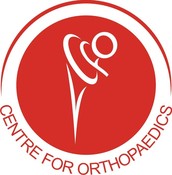|
|

|
« Back
My brother was in a motorcycle accident that left him with severe damage to his left leg. It's been two years now since it happened and he still seems to be emotional numb. Depression was a major problem before and has only gotten worse after the accident. Is there any way to shake him out of his misery?
|
|
There's an old saying, Pain is inevitable but misery is optional. That might be an easier idea to swallow when you aren't in pain compared to when chronic, persistent pain colors every minute of every day. And usually, along with constant pain comes anxiety, depression, and decreased physical function.
Negative mood or a pessimistic view of circumstances are well-known to contribute to someone's physical pain. And physical pain does have a direct effect on level of function at home, at work, and even at play (recreational activities).
Studies show that pain is the most significant factor during the first 12 months of recovery. After that, psychologic and emotional pain become much more obvious and impact the patient's health more directly. As might be expected, the higher the psychologic distress, the lower the physical function. It appears that pain and negative mood affect level of function rather than the other way around (low function results in increased pain and negative mood).
There is also a problem called fear-avoidance behaviors. Fear of pain causes patients to avoid any activities they think might cause pain or increase their pain. The less they do, the more likely they are to lose even more function. Fear leads to withdrawal from daily activities and an increased awareness of any physical symptoms. The resulting anxiety can be a key contributor to misery.
There are ways to treat this problem. Medications for the mood disorder, exercise within the physical capacity of the patient, and behavioral counseling are all equally important. Even if your brother has already gone through a program of this type, it might be worth a second try. And if he has not been guided through a comprehensive rehab program, this would be a good time to suggest it.
|
References:
|
|
|
« Back
|
|
|
|
*Disclaimer:*The information contained herein is compiled from a variety of sources. It may not be complete or timely. It does not cover all diseases, physical conditions, ailments or treatments. The information should NOT be used in place of visit with your healthcare provider, nor should you disregard the advice of your health care provider because of any information you read in this topic. |
 | All content provided by eORTHOPOD® is a registered trademark of Mosaic Medical Group, L.L.C.. Content is the sole property of Mosaic Medical Group, LLC and used herein by permission. |
|
